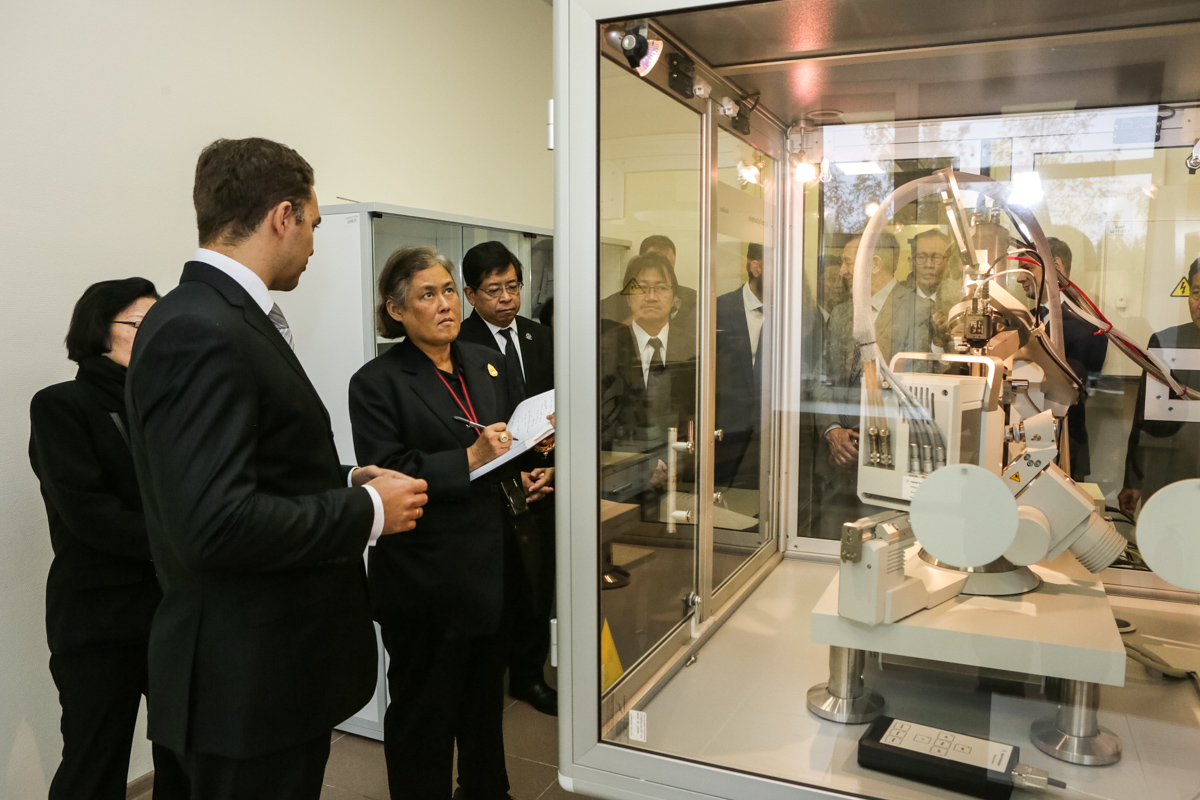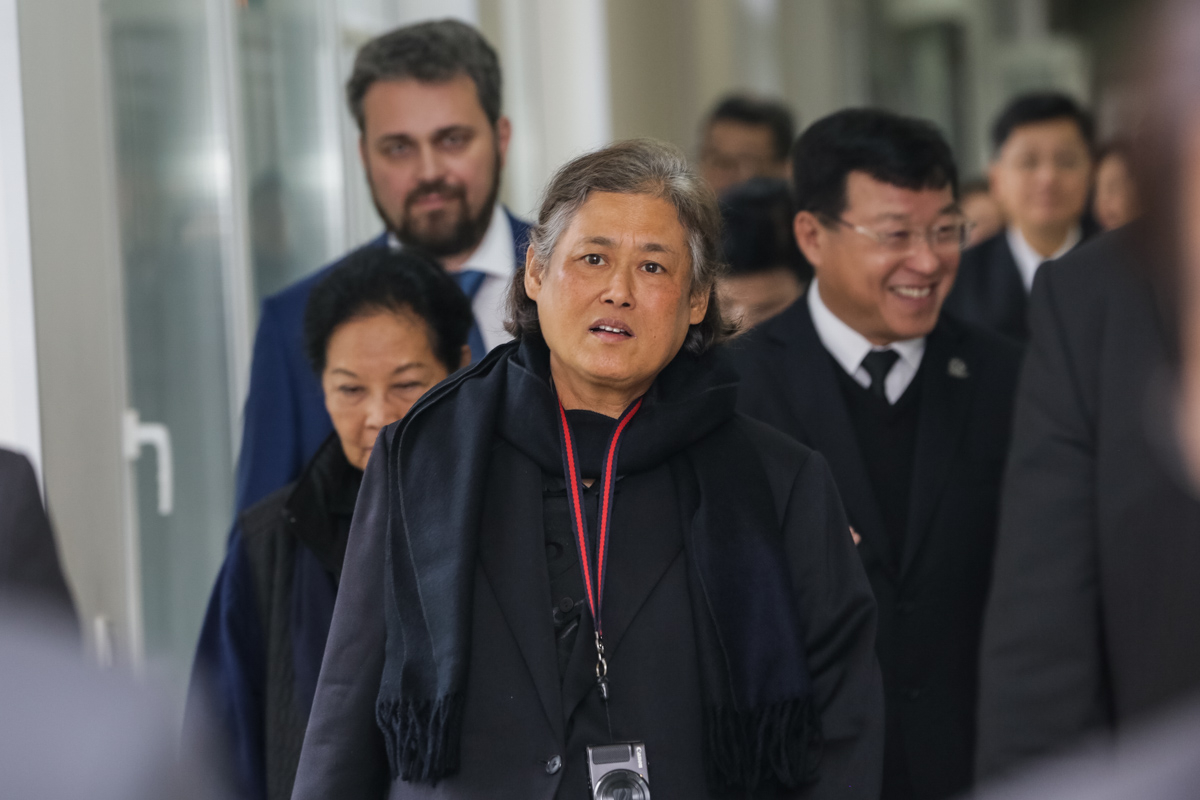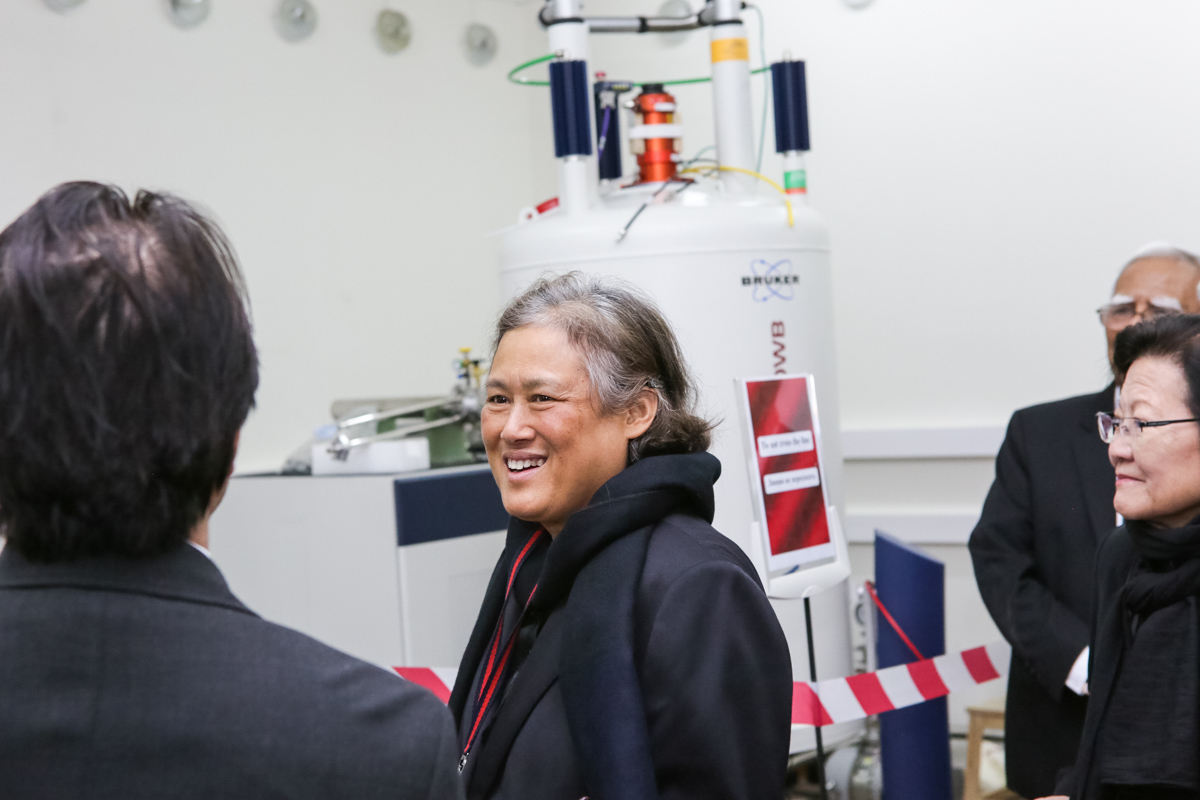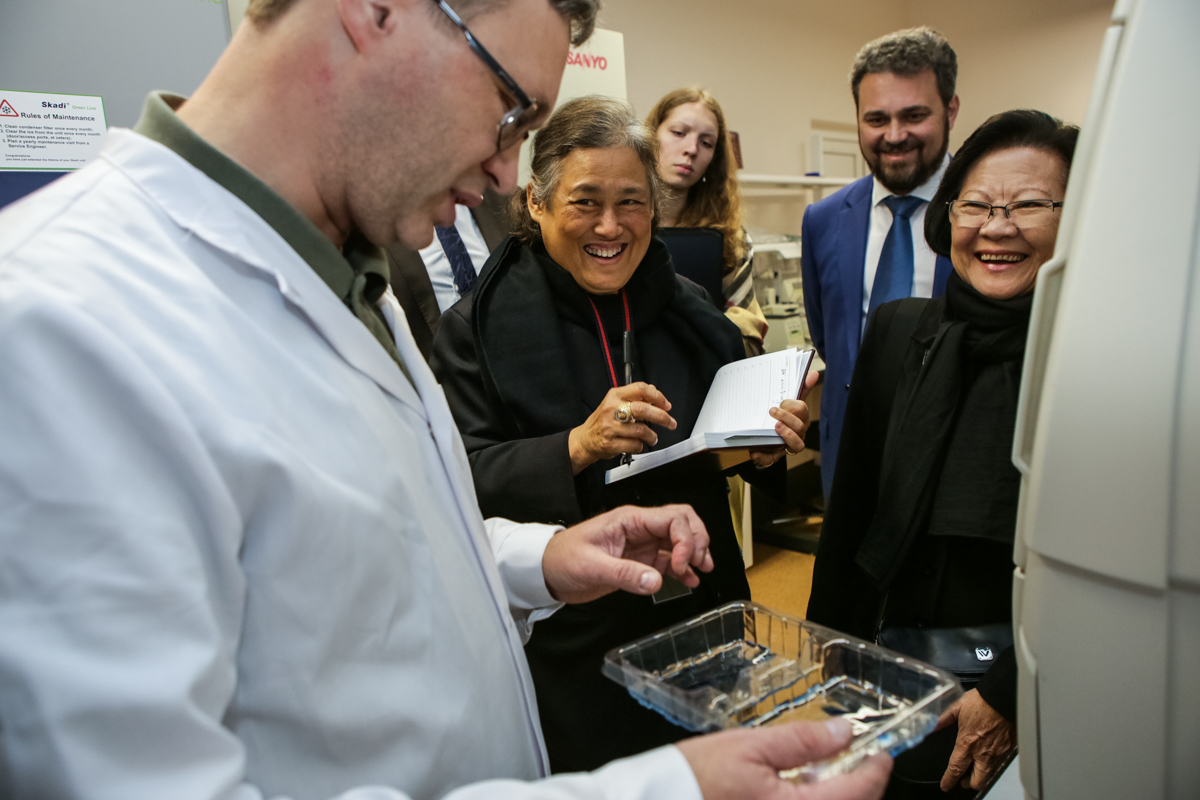Princess Maha Chakri Sirindhorn of Thailand visited SPbU’s Research Park
The delegation led by the Princess Maha Chakri Sirindhorn of Thailand has visited St Petersburg University on the 120-anniversary of the Russia-Thailand diplomatic relationships.
The Princess has got insight into how the SPbU’s Research Park works nationally and globally and become interested in collaboration in research with the oldest university in Russia.
Princess Sirindorn is recognized as a talented diplomat and an outstanding figure in research. In Thailand, she has responsibility for culture and education and supervises a number of the leading universities: Mahidol University, Thammasat University and King Mongkut's University of Technology North Bangkok. She has a degree in various fields and delivers lectures on philosophy and culture.
During her trip to St Petersburg, she was accompanied by a number of the representatives from the big research organization in Thailand to get insight into what research potential and intellectual resources SPbU can offer and how scientists and students can gain access to the research equipment. The delegation was met by the SPbU’s Senior Vice-Rector Ilia Dementiev, SPbU’s Deputy Rector for International Affairs Sergei Andrushin, and SPbU’s scientists
The high-technology equipment is remarkably effective today: it operates over 20 hours a day, and you can submit an application form to use the equipment on-line from any part of the globe. The equipment the Research Park offers is globally available: one in two users are people outside the University, while the majority of its users are from outside Russia.
Princess got to know how the Research Park operates and visited some of the Resource Centres:
- Centre for Molecular and Cell Technologies
- Centre for X-ray Diffraction Studies
- Centre for Diagnostics of Functional Materials for Medicine, Pharmacology and Nanoelectronics
The delegation was particularly interested in the SPbU’s Biobank, a unique project in biomedicine. The delegation saw the equipment for sample preparation and DNA extraction, cutting-edge cryoreservoirs, and the only in Russia HiSeq 4000 System.
“Most of our research projects focus on human health. By using our biomaterials we can study multiple sclerosis, Alzheimer disease, Parkinson disease, autism, and II-type diabetes to name but a few. We are collaborating with over 20 Russian hospitals and a number of biobanks abroad, and in September we hold the first in Russia school on biobanking for the scientists in medicine and biology”, — said the SPbU Biobank’s Director Andrei Glotov.
Princes was eager to get insight into joint research projects between SPbU and universities abroad. The Research Park has scientists from all over the world on a regular basis, said the Director of the Magnetic Resonance Research Centre Petr Tolstoi.
We are always open to start collaboration in research with the scientists from outside Russia, with Thailand as well.
Director of the Magnetic Resonance Research Centre Petr Tolstoi
“Our projects comprises scientists from other countries and we work with them during all the stages the projects include: from preparation to publication of results in the peer-reviewed journals. Last year, we worked with the scientists from Poland, Germany, Israel, Mexico, and North Africa”, — said Petr Tolstoi.
During the meeting, SPbU and Thai delegation discussed the most current issues of collaboration in research and education. Princess told that she would be glad to develop students and staff exchange between the countries to make it possible for students and researchers to share experience.
The SPbU’s Research Park has 26 resource centres, with the cost of equipment of over 7 bln rubles and the total areas of 30 thousand sq.m. It has over 280 high-calibre engineers, and its consumable and expendable materials are fully financed by the University. It is available to anyone within and outside the University.





